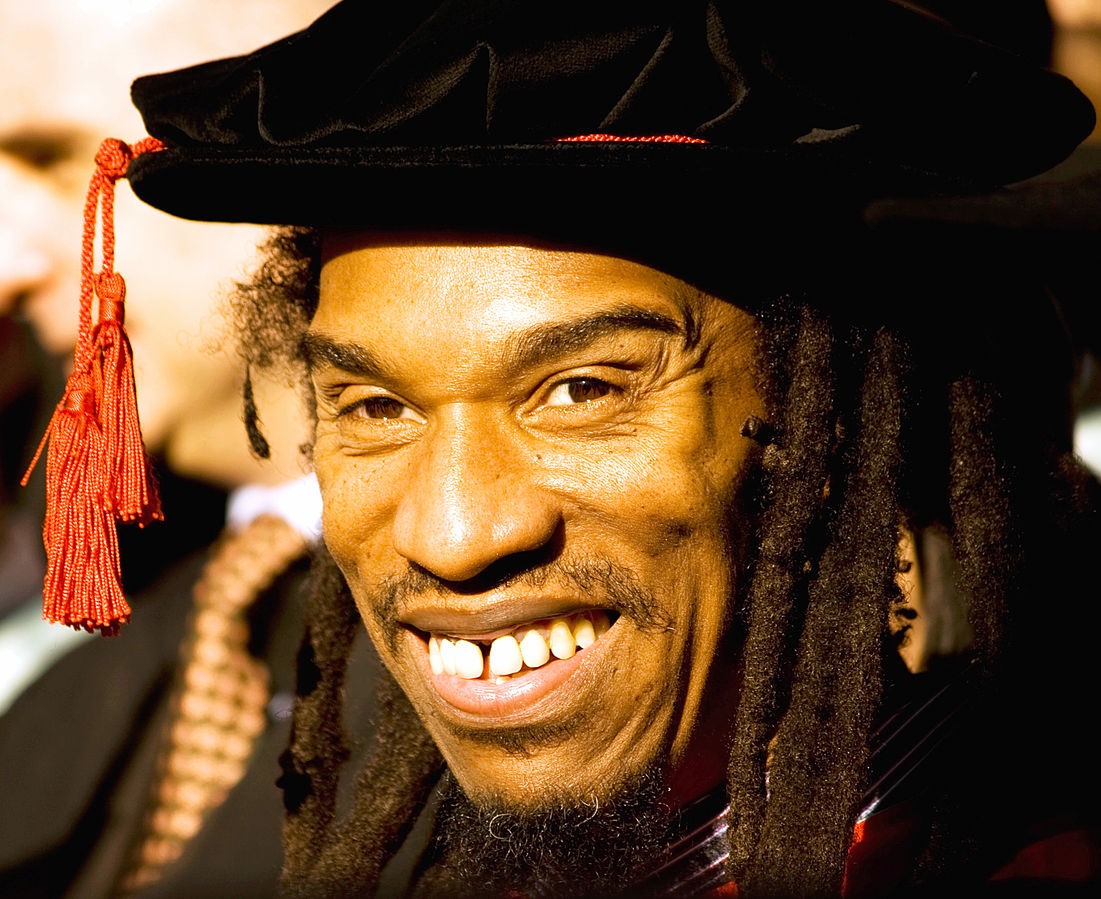Remembering Benjamin Zephaniah: ‘the people’s laureate’
On December 7th, the celebrated British poet and writer Benjamin Zephaniah passed away, aged 65. Dubbed a ‘true pioneer and innovator’, Zephaniah died with his wife by his side. He had no children, speaking openly about his struggle with infertility and how it had an impact on his relationships.
Zephaniah, known for his ability to use humour and wit to address political injustices and other topics such as veganism, refugees, and his own lived experiences of incarceration, was a highly celebrated poet who received at least sixteen honorary doctorates and the BBC Young Playwright’s Award. His talents knew no bounds, spanning novels, plays, poetry anthologies and the small screen – some may even remember him for his role as preacher Jeremiah Jesus in Peaky Blinders.
Born in 1958, Birmingham to a Barbadian father and Jamaican mother, Zephaniah struggled with school as a child. In an interview with the Independent’s Helen Brown, he recounted how he got into trouble with a teacher for questioning her use of the words ‘local savages’ when talking about Africa and came to realise that another teacher was stereotyping him as ‘a good sportsperson’ when he asked for some help when struggling to engage with writing. Zephaniah then proceeded to leave school at the age of 13, unable to read and write. After serving a brief prison sentence for burglary as a young man, Zephaniah, frustrated with the limitations of being a black poet in an oppressive environment, set off for London aged 22.
It was under this backdrop of his struggles to read and write, and the racism that he faced on a regular basis, that Zephaniah decided to democratise access to the arts and take poetry everywhere, including to the people who could not read. Brown mentions in her interview how she found her own autistic son, who was slow learning how to read and write, holding a book of Zephaniah’s poetry, reading an entry called ‘Sunny Side Up’ – which was written upside down, so as to mess with the system. Brown touches on the very essence of Zephaniah with this anecdote, giving power to those who are constantly told they are less.
For me, a poet who spoke to my very soul has left us, but his simple honesty remains to reminder us all to be just a little bit kinder in our daily interactions.
Zephaniah, who was deeply influenced by the music and poetry of Jamaica, went on to publish his first collection of poetry in 1980, titled Pen Rhythm, where he made use of the style of dub poetry – a Jamaican style which evolved from the same-named music genre. He began performing at demonstrations, youth gatherings, and outside police stations, continuing to publish alongside television appearances in programs such as The Bill and Dread Poets’ Society. He recounted once how once he became successful, he bought a BMW but was stopped four times by the police, leading him to sell it. It was against this ‘in your face’ racism that Zephaniah sought to fight, begging Tony Blair to meet him to discuss crime, and turning down an OBE in 2003, arguing that it would have been hypocritical for someone who had fought against empire their entire life to accept such an award.
Most of us probably remember Zephaniah from our school days, and it’s safe to say that with such a prolific career, the entire country will remember him in some shape or form. But it is perhaps his animal activism that will stand out the most. He became a vegetarian at nine and a vegan at 13, penning a poem called ‘Talking Turkeys’ that turns Christmas dinner on its head in an extremely playful way.
For me, Zephaniah is a feeling. When I read his poetry, I get swept away in the lyricism before the message pulls me back, allowing me to relate to my own experiences. One of my favourites is his poem The British, which turns the history of the United Kingdom into a recipe – with an important note at the end:
“Note: All the ingredients are equally important. Treating one ingredient better than another will leave a bitter unpleasant taste.
Warning: An unequal spread of justice will damage the people and cause pain. Give justice and equality to all.”
It’s a simple, yet powerful message we could all do with remembering now and again. For me, a poet who spoke to my very soul has left us, but his simple honesty remains to reminder us all to be just a little bit kinder in our daily interactions. The Birmingham Mail was right – if anyone was ‘the people’s laureate’, it was Benjamin Zephaniah.

Comments